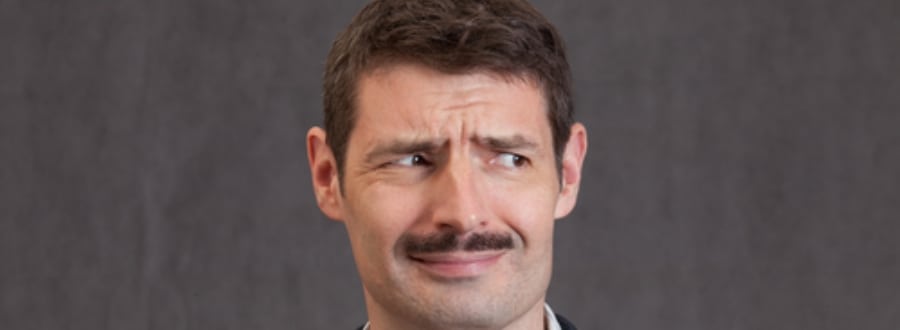During the month of November we see men of all ages donning ‘the mo’ in support of the MOvember Changing the Face of Men’s Health campaign. It is a great campaign but is it doing its job?
Are we more aware of men’s health? Do more men actually go to the doctor for a check-up? Are you aware that November is also Pancreatic Cancer Awareness Month? And, if you did grow a mo in support of such a worthy cause, did you officially sign up and ask all your friends to donate?
With the rise of social media and pressure for increased social responsibility, there are more public awareness campaigns than ever. This week my newsfeed has been dominated by the commendable UN campaign International Day for the Elimination of Violence against Women in conjunction with Australia’s White Ribbon Day. I am truly glad to see this as I believe that it is an indication that awareness has been raised for this very important issue.
I believe this to be a worthwhile campaign, but that is not to say that I do not support and commend all of the other campaigns that we are bombarded with every day, week, and month. But I do question whether we are answering the call to action? Is raising awareness enough?
UNISEF dared to be daring in their Facebook campaign last year by boldly declaring “Like us on Facebook and we will vaccinate zero children against polio”. This was followed by a call to action that asked the public to donate 4 Euros on their website to vaccinate 12 children against the disease.
Crisis Relief Singapore had a similar idea when they released a moving campaign with a clear call to action through its “Liking Isn’t Helping. Be a Volunteer. Change a Life“ ads on Facebook.
The #nomakeupselfie campaign showed its face in 2014. It became one of the Cancer Research UK’s most successful fundraising drives with £8million raised and an estimated two million women across the world sharing pictures of themselves without makeup on social media. The campaign, which encouraged participants to donate £3 and nominate a friend, became viral – which is astonishing since it was the brainchild of the 18-year-old woman from the UK who initiated it, not the Cancer Research UK.
One of the most interesting public awareness campaigns this year saw celebrities, politicians and the average Joe and Jane participating in the ALS Association’s Ice Bucket Challenge. Our newsfeeds and news programs were flooded with short videos and requests for donations. And during the period 29 July to 28 August ALS reportedly received $98.2m in donations, saturation compared with the $2.7m in donations they received during the same period last year.
But several weeks into the campaign, things started to turn a little icy. There seemed to be a backlash of people wanting to use the success of the stunt to raise awareness (and donations) for charities and organisations that were more personal and closer to their own heart. As a result, UK charities like the MacMillian Cancer Support and Water Aid received also a steep spike in donations.
Like with the #nomakeupselfie campaign, no one planned the Ice Bucket Challenge. It is something that may have grown out of a “Cold Water Challenge” in North America which evolved into a request for donations for ALS. Starting with Justin Timberlake, it surged with support from celebrities around the globe and proved the extraordinary, and somewhat uncontrollable, power of social media.
Not everyone donated to the ALS cause. Some people will share a post but never donate money, no matter the cause. There are many reasons for this conscious decision, all of which are really none of anyone else’s business. The only thing that should matter is that the cause benefits in one way or another.
People forget that there are alternative ways to help others in need without donating to larger charities. Pocket change can be donated to homeless buskers. Buy the latest copy of The Big Issue and give the local down-and-out Londoner a sandwich every now and then. In the lead up to Christmas, you can donate your time at a soup kitchen or shelter. I am also a big believer in donating blood as an alternative to donating money.
On the 10th of October I posted on my Facebook account about World Mental Health Day. I did this to raise awareness about depression and other mental health issues that affect so many people every day. I posted about this issue because I know of many people suffering from mental health illnesses in secret. I want them, and others, to not be afraid to talk about depression and other mental health issues that affect so many everyday people.
It was not about asking people to donate or volunteer, though these would have been brilliant outcomes too. It was about trying to combat the stigma that surrounds the issue and to let others know that I am comfortable and happy to talk about it with them if they want to.
If more men got health checks during Movember, if more people were prompted to volunteer to Crisis Relief, and if fewer women are targets of violence, isn’t raising awareness achieving its goal?
So continue to share, post, and like… because sometimes raising awareness might indeed be enough.
Read more of Jacquie’s Honeymooning Nomad series about life as an Aussie expat and visit her website www.neverendinghoneymoon.net
IMAGE: File image via Shutterstock.com








 Explore top-rated compensation lawyers in Brisbane! Offering expert legal help for your claim. Your victory is our priority!
Explore top-rated compensation lawyers in Brisbane! Offering expert legal help for your claim. Your victory is our priority! 

 "
"


